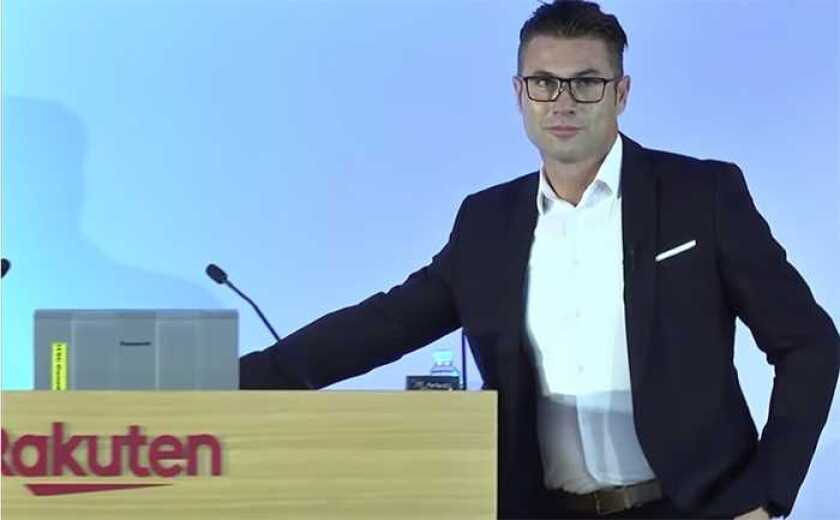Rakuten and NEC said in Tokyo this morning that they have started production of the open radio access network (RAN) units at a factory in Fukushima, the city hit by an earthquake and tsunami in 2011.
Tareq Amin (pictured), CTO of Rakuten Mobile, said: “With the launch of production of the 5G radio unit [RU], we will begin work on the construction of our 5G base stations and will aim to provide our subscribers with a cost efficient, highly secure, high quality 5G service.”
Rakuten, owned by a Japanese electronic commerce and online retailing company, is modelling its launch on that of Reliance Jio, the Indian company that launched its 4G-only service in 2016 and has since devastated the Indian mobile market. Amin is a former CTO of Jio.
“NEC’s 5G RU, developed and produced in Japan, will play a very important role in Rakuten Mobile’s fully virtualised cloud-native mobile network,” said Amin at this morning’s announcement.
Atsuo Kawamura, president of NEC’s network services business unit, said: “The 5G RU, produced at our Fukushima plant, conforms with open architecture standards, and comes in a compact form factor with low power consumption. By expanding the open 5G ecosystem, NEC will contribute to the creation of new mobile services around the world.”
Rakuten Mobile said it will begin the build-out of its 5G network, starting with the construction of base stations in the Tokyo area, and work toward the launch of 5G commercial services in June 2020. The company said it is building the world’s first end-to-end fully virtualised cloud native network.
Earlier this month, Rakuten chose Nokia’s wavelength routing technology for its optical transport for the new network. It was, said Nokia, the world’s first fully reconfigurable photonic mesh mobile backhaul network.
Rakuten group is also partnering with Vodafone to invest in Texas satellite company AST & Science, which plans to launch low-orbit satellites that will connect directly to smartphones and work with terrestrial cellular networks. AST & Science, which will operate under the brand SpaceMobile, has raised $128 million, with other investors including American Tower and Samsung Next, the Korean company’s investment arm.






